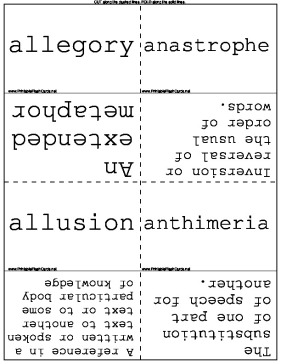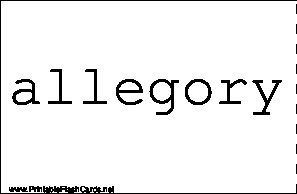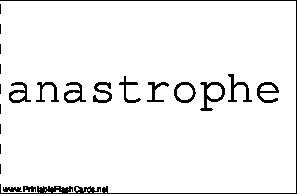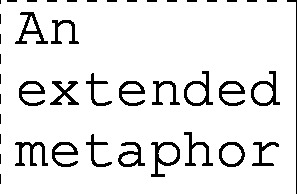

Improve your oral and writing skills for persuasive essays and rhetorical speeches with these literature flash cards.
There are 21 flash cards in this set (6 pages to print.)
To use:
1. Print out the cards.
2. Cut along the dashed lines.
3. Fold along the solid lines.
Sample flash cards in this set:




| Questions | Answers |
|---|---|
| allegory | An extended metaphor |
| anastrophe | Inversion or reversal of the usual order of words. |
| allusion | A reference in a written or spoken text to another text or to some particular body of knowledge |
| anthimeria | The substitution of one part of speech for another. |
| antithesis | The juxtaposition of contrasting words or ideas, often in parallel structure |
| hyperbole | An exaggeration for effect. |
| meiosis | Representation of a thing as less than it really is to compel greater esteem for it. |
| oxymoron | Juxtaposed words with seemingly contradictory meanings. |
| paralipsis | Irony in which one proposes to pass over a matter, but subtly reveals it. |
| peroration | In ancient Roman oratory, the part of a speech in which the speaker would draw together the entire argument and include material designed to compel the audience to think or act in a way consonant with the central argument. |
| protagonist | The major character in a piece of literature; the figure in the narrative whose interests the reader is most concerned about and sympathetic toward. |
| repertoire | A set of assumptions, skills, facts, and experience that a reader brings to a text to make meaning. |
| syllogism | Logical reasoning from inarguable premises. |
| synecdoche | A part of something used to refer to the whole. |
| chiasmus | Inverted relationship between two elements in two parallel phrases. |
| isocolon | Parallel elements that are similar in structure and in length. |
| mnemonic device | A systematic aid to memory. |
| anadiplosis | The repetition of the last word of one clause at the beginning of the following clause. |
| onomatopoeia | A literary device in which the sound of a word is related to its meaning. |
| anaphora | The repetition of a group of words at the beginning of successive clauses |
| antecedent-consequence relationship | The relationship expressed by "if...then" reasoning |